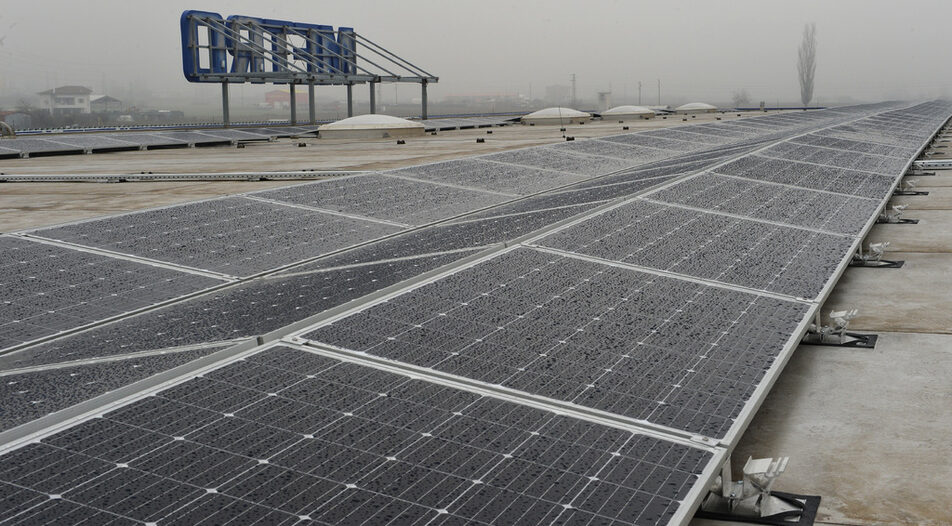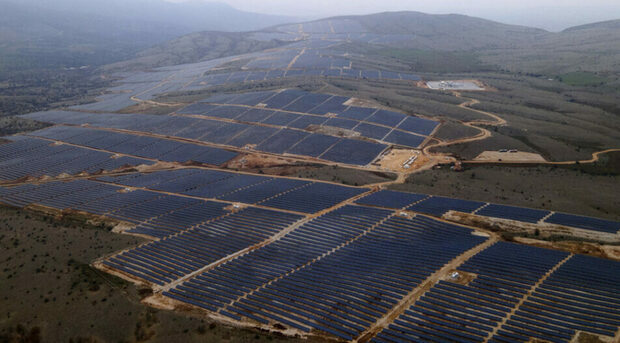The most effective way for a business to avoid market volatility in terms of electricity prices is to produce its own energy - for example, by investing in solar panels mounted on rooftop at factories, offices and shops, or even on parking lots and other land nearby. The number of companies in the EU following this path has grown from several thousand in 2020 to tens of thousands in 2021, and even more in recent months since the start of the war of Russia against Ukraine.
However, the problem with those investments in Bulgaria is time - often the implementation of such a project, which does not aim to sell electricity, but only to supply the company, takes between 12 and 18 months. The construction itself takes no more than a month, while the rest of the time is wasted on red tape. This is the reason why a group of MPs from the ruling coalition led by Vladimir Tabutov and Radoslav Ribarski, proposed changes to the Energy Act's renewables section in order to facilitate the process.
In short, the goal is for business consumers to be able to quickly put in place an installation of photovoltaic (PV) panels with a capacity of up to 5 megawatts for their own consumption, which is roughly enough to cover the consumption of 2,000 households. Now, the procedure is easier only for regular household consumers who install up to 30 kW.
The draft bill was submitted on March 11 and then passed first reading in the parliament's energy commission and the commission of regional policies. However, since then a number of position papers coming from stakeholders, including from government ministries, criticized the lawmakers' proposals and called for a deeper analysis of the sector and the reforms it needs. The business community saw this as a signal that the draft may not become law soon and that it will likely continue to wait for months before it is allowed to generate electricity for its own needs.
What are the planned changes?
The most significant change is that the bill foresees the elimination of the winding procedure for a "survey of the conditions for connection." This is usually where businesses face the longest administrative obstacle to connecting to the grid. The bill proposes that the electricity distribution companies will be notified directly and an approval from them would not be needed.
Changes are also made in the Structure of the Territory act, which will optimize the terms of construction. In addition, the necessity to obtain the agreement for the investment project from several state institutions is going to be dropped. Instead, the projects will be included in the process of coordination with the mayor of the municipality, where the PV installation will be built, which can be done online.
A proposal has been made to eliminate excise tax when the produced electricity is only for one's own needs. In Bulgaria, excise of 2 levs (1 euro) per MWh is levied on electricity and each producer is obliged to register with the Customs Agency to pay the excise tax. This also applies to companies that have installed solar panels on the roofs of their buildings. The only exception is for household users.
Pros and cons
In a statement in response to the introduction of the bill, Greenpeace Bulgaria welcomed the changes as a step in the right direction, but described them as "incomplete," warning that they can potentially have the opposite effect of discouraging investors. The environmental organization proposes that the explicit possibility for the installation of solar panels on greenhouses and other farm buildings be included in the bill. Greenpeace Bulgaria also draws attention to the fact that there is no clear explanation of the term "off-grid" for sites that do not want to be connected to the electricity grid.
The Ministry of Regional Development, for its part, warned that the 5 megawatt capacity threshold is too high to pass without an investment project that explicitly describes the plant's management systems ensuring that it does not return energy to the grid (not selling electricity). Investment projects that are designed to return electricity ought to have energy storage systems or other means of balancing the grid when the PVs can't work due to weather conditions. According to the ministry, the proposed bill is indeed necessary, but some parts of it must be explained in detail and discussed further.
In their opinion on the bill, the Ministry of Energy also pointed out that the proposed relief is too wide in terms of capacity - 5 megawatts is the electricity consumption of medium-sized municipalities. According to Deputy Energy Minister Plamen Danailov, the "notification policy" will not be able to guarantee all the technical elements needed to ensure the security of a project. Also, if the connection of each facility to the grid is left entirely to the discretion of electricity distribution companies - ElectroDistribution Grid West, part of Eurohold Bulgaria (formerly CEZ Distribution), and the local subsidiaries of Austria's EVN and Czech Energo-pro - issues might arise.
Specifically, ElectroDistribution Grid West points out that the proposed changes in the renewable energy law may unbalance the electricity transmission network, as the responsibility for connecting new renewable sources is transferred entirely to the network operators. Therefore, the company requests that the bill ensures the installation of protective equipment, through which the distribution companies can turn private PV parks on and off remotely according to the needs of the network, as well as that no energy is returned to the grid when the installation is producing for one's own needs. It proposes that the preferential conditions only apply to installations with a capacity of up to 1 megawatt, vouching for the reduction of the period of approval for this type of projects from 30 to 14 days. The reason is that in recent years applications have multiplied - from 1200 in 2020 to over 3000 in 2021 and 1200 only for the first two months of 2022 - and the company can't cope with processing them.
Finance Minister Assen Vassilev proposed that the payment of excise duty should not be made on a monthly basis (as it is done currently), but on an annual basis. This is expected to relieve businesses from some of the red tape they have been facing.
More comprehensive changes needed to promote renewables
The regional development ministry draws attention to something quite significant - the amendments currently proposed to the Renewable Energy Law are extremely insufficient and do not fully reflect the requirements of the EU Directive on Green Energy Promotion, which Bulgaria has not yet transposed into its legislation. In this regard, regional development minister Grozdan Karadzhov proposed a comprehensive approach that introduces all necessary changes at once.
In this regard, ElectroDistribution Grid West points out that there is a need for clear regulation of the three categories of electricity producers - those who build renewable energy capacity to sell electricity, those who use the energy only for their own needs, and others who both sell and consume electricity.
The Chamber of Engineers in Investment Projecting believes that the proposed changes will not achieve the desired effect, as only some large enterprises will be able to benefit from them. According to the Chamber, the real goal of the legal changes should be to drastically ease the requirements for placing small solar capacities on residential buildings - with a capacity of up to 5 kW. They would be much easier to integrate into the network and would have a much greater effect on the overall energy transformation of Bulgaria, without the need for huge investments in the network.
In any case, discussing the actual effects of these changes, whatever their final shape, can only happen after their implementation, which does not seem possible, at least until the end of May.
The most effective way for a business to avoid market volatility in terms of electricity prices is to produce its own energy - for example, by investing in solar panels mounted on rooftop at factories, offices and shops, or even on parking lots and other land nearby. The number of companies in the EU following this path has grown from several thousand in 2020 to tens of thousands in 2021, and even more in recent months since the start of the war of Russia against Ukraine.












